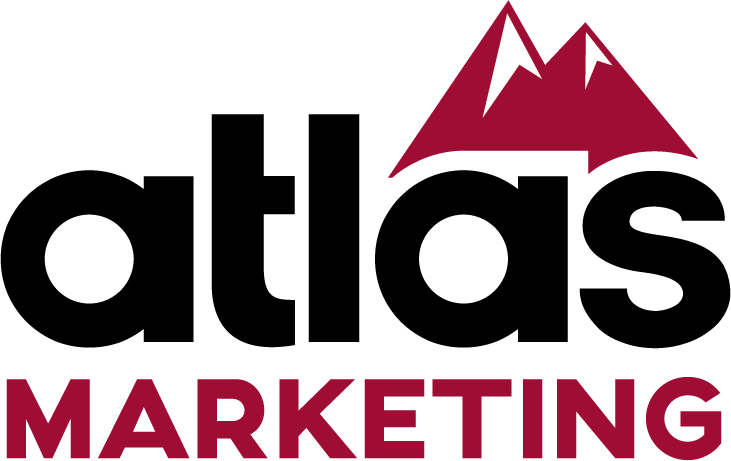The Contractor’s Guide to Using Social Media

Building brand awareness on social media may seem like a daunting task, but it is time well spent. Social media is a vehicle to share your story, continue building your brand, and engage with your community, clients, and employees. However, before you start posting, there are a few tips you should know so you can navigate social media like a pro.
Why utilizing social media is important
Social media is one of many digital marketing tools that can be integrated into an overall marketing plan. This means that for your social media strategy to work, you must understand your goals as they relate to the bigger picture. That’s what makes social media so important – it gives you one more way to reach your goals, and the more ways to reach your goals, the better.
We’ll touch on this point a bit later in this guide when we talk about finding the right strategies for your company. For now, just know that social media is a popular, intuitive, FREE (in most cases), and extremely accessible way to reach your target audience, and when utilized correctly can prove to be very valuable. And yes, this is true even for the construction industry.
Social media platforms you should know
There are many social media platforms that exist and it’s easy to feel overwhelmed. But trust us when we say you don’t need to know them all to win the social game. While every social media platform performs a similar job – offering a way to connect – each one has unique features that can help you achieve your objectives.
Most construction industry marketers are going to gravitate to one or more of “the big five”: Facebook, LinkedIn, Twitter, Youtube, and Instagram.
Here are brief user profiles for each platform and the best way for construction industry professionals to use them:
Facebook:
Facebook is by far the largest platform when it comes to number of users. This platform leans heavily toward community and social interaction. Content that performs better on Facebook is usually about people (employee highlights, volunteerism, community interaction, employment opportunities, etc.) and projects of visual interest. Facebook business pages can also be utilized for promoting projects, community outreach, and other business culture items, which helps to separate the personal from the professional.
Main Demographics:
User share in 2022 is 57% male and 43% female. The average age range of users is 25 – 54, though this range skews older each year.
Insider Tip:
Facebook has one of the largest ad databases of any social media platform (a moral debate for another time). So, while it is a free platform, putting a few advertising dollars behind a post here and there can help you reach a lot of people and learn even more about your audience
LinkedIn:
LinkedIn is the business world’s social media platform. It is designed for professional engagement and sharing industry news, networking, and information. Users can have their own professional profiles and a business can have its own page. Ideal topics for LinkedIn include company news, industry point-of-views, employment opportunities, project announcements, and business/employee achievements. Additionally, business pages can showcase companywide industry expertise through articles, videos, and links to association sites or event details.
Main Demographics:
User share is equally male and female, with nearly 80% of users between the ages of 25 and 54.
Insider Tip:
LinkedIn has a “trending topics” section displaying heavily circulated articles and topics that users – and businesses – can comment on. Not only is it a helpful tool to help you stay in the loop, but these topics can also be customized to your industry so you’re joining the most relevant conversations.
Twitter:
Twitter is a news highlights platform. With a limit of 280 characters, bite-size morsels of your story are ideal for quick newsfeed skims. Twitter tends to sit in between Facebook and LinkedIn when it comes to social engagement versus business engagement. Topics that tend to perform well on Twitter include business news announcements and expert commentary to published articles.
Main Demographics:
User share is 61.6% male and 38.4% female. And, nearly 80% of users are between the ages of 18 and 49.
Insider Tip:
Twitter is all about what’s happening “right now.” The ability to generate buzz around trending topics is the platform’s best feature by far. Try to strike when the iron is hot, so you don’t miss out on fleeting opportunities to speak on relevant topics or events.
YouTube:
Youtube has over 2 billion user visits every month, worldwide, making it a vital social media platform. Video content is Youtube’s bread and butter. Content that construction industry professionals should focus on here varies from short snippets to long-form interviews and product showcases.
Main Demographics:
Youtube is popular across all age groups. User share is also evenly split between men and women.
Insider Tips:
How-to videos are very popular on Youtube. Posting educational content alongside product and service showcases will elevate your profile.
Instagram:
Instagram is a visual-first platform, with short-form video making a rise in popularity. Construction industry content that does well on the platform includes project showcases, employee highlights, work culture and team building pictures, and real-time shots from jobsites. The key on Instagram is to entertain while educating your audience.
Main Demographics:
User share is fairly even at 48% female and 52% male. 62% of all users are between the ages of 18 and 34.
Insider Tip:
Instagram also utilizes a feature called “stories.” These stories are separate from the everyday content posted on a user’s main page and only visible for 24 hours. This feature allows users to share content or post messages within a separate feed. It’s also a great way to comment on trending topics while keeping evergreen content on your main profile.
What your social media strategy should look like
When it comes to social media strategy, there is no one-size-fits-all answer. And if someone tells you that there is, they’re not being honest or focusing on your unique needs. There are, however, a few key questions that will help you create the right strategy for you:
- What audience to I want to reach?
- What do I want my audience to know about my business?
- What content do I already have that can be used on each platform?
- How is my story unique to each platform’s core audience?
With answers in hand, a strategy will soon take shape. In social media, like in business, there are no guarantees. Don’t let this scare you. Start small by focusing on one or two platforms that you feel will reach your desired audience best. This initial strategy will have bumps along the way – take these in stride and collect data as you go. Learn and adapt and keep going based on what’s working for your business and your audience.
When it comes to frequency of posting, know that consistency is the key to success on any social media platform. Allow the way your audience responds to your content to determine your posting frequency and adjust from there. Be sure to focus on quality over quantity. Customers or clients aren’t shopping for construction services on social media, but they will visit these profiles to get a sense of your previous work and brand identity. Work on getting the message right so you can present your business well.
Final tips
Having a social media presence can be both valuable and beneficial to your company. How you use social media, and with what frequency, depends on your objectives, resources, and budget. Whether you have an established following or are just getting started, use this information to develop and execute a sound social media strategy. Social media can put you ahead of competitors and grow your audience in a way that adds value for clients.
Atlas Marketing is a construction marketing agency focusing on digital and traditional marketing, website development and design, public relations, and brand work. Headquartered in Sewickley, PA, the agency has a second office location in Lititz, PA, as well. In addition to standard marketing services, Atlas Marketing also specializes in crisis communications, social media, and blog writing. For more information on how the agency serves the construction industry, or to contact us, visit our website at www.atlasstories.com.
